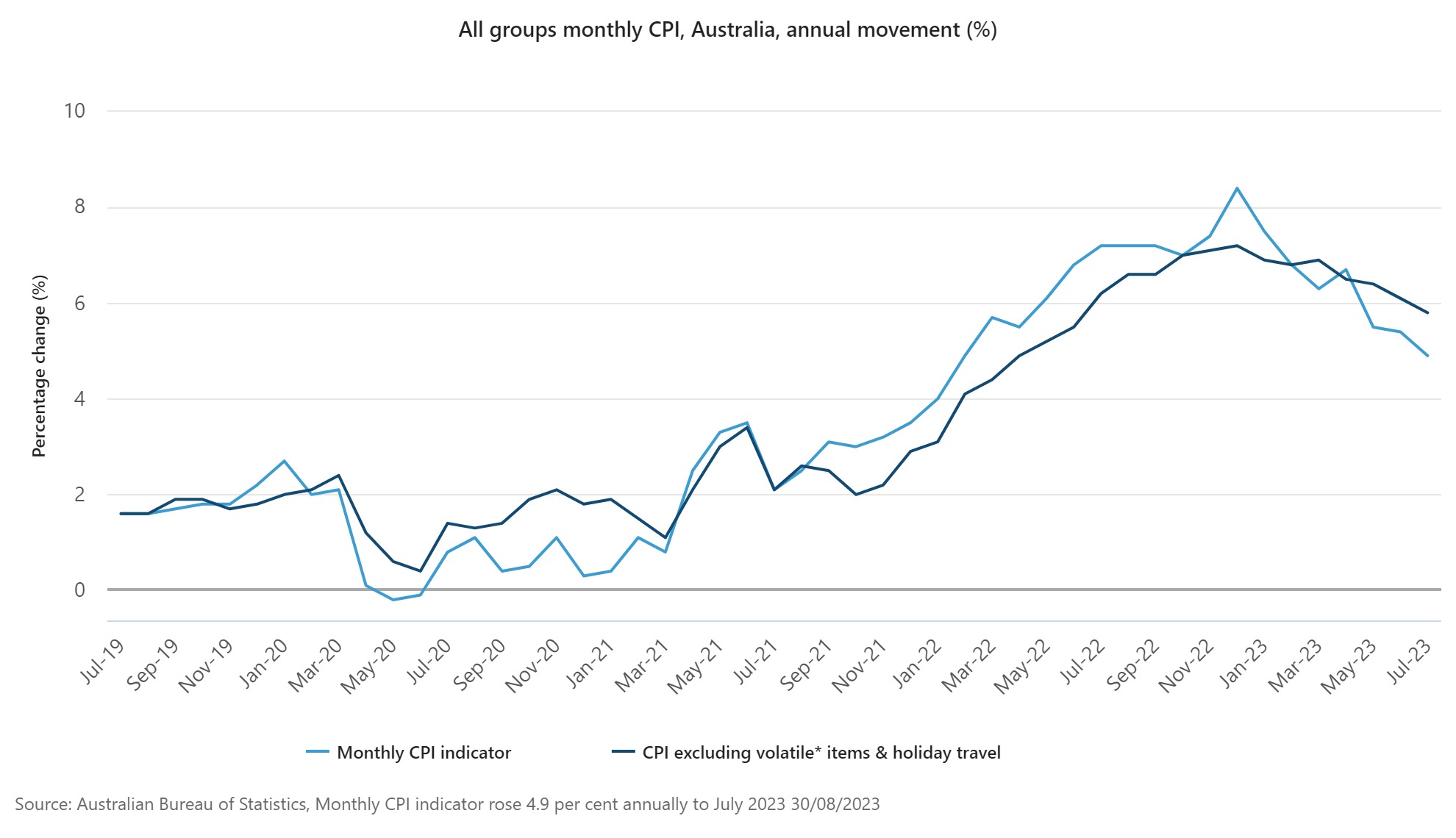The month-to-month Client Worth Index (CPI) indicator rose 4.9% within the 12 months to July 2023 down from 5.4% in June, based on the most recent knowledge from the Australian Bureau of Statistics (ABS).
Nevertheless, it stays to be seen whether or not the most recent inflation knowledge may have any impact on the official money price, which might be determined on the subsequent RBA board assembly subsequent Tuesday, September 5.
Michelle Marquardt (pictured above), ABS head of costs statistics, mentioned annual value rises proceed to ease from the height of 8.4% in December 2022.
“CPI inflation is usually impacted by objects with risky value modifications like automotive gasoline, fruit and greens, and vacation journey. It may be useful to exclude this stuff from the headline CPI indicator to offer a view of underlying inflation,” Marquardt mentioned.
When excluding these risky objects, the decline in annual inflation is extra modest at 5.8% in July, in comparison with 6.1% in June.”

What drove inflation?
It was once more the same old suspects, housing and electrical energy, that drove inflation.
Nevertheless, the annual enhance for housing of seven.3% was barely decrease than the 7.4% enhance in June.
New dwelling costs rose 5.9%, which is the bottom annual rise since October 2021, as constructing materials value will increase continued to ease. Lease costs rose 7.6% in July, up from 7.3% in June, because the rental market stays tight.
Electrical energy costs rose 15.7% year-on-year and rose 6% in simply the month of July.
These will increase replicate value critiques throughout all capital cities. Rebates launched from July lowered the influence of electrical energy value will increase for eligible households.
“The Power Invoice Aid Fund offers eligible households with rebates starting from $43.75 to $250 in July. If we exclude the influence of rebates from the July 2023 figures, electrical energy costs would have recorded a month-to-month enhance of 19.2%,” Ms Marquardt mentioned.
Meals and non-alcoholic drinks (+5.6%) was additionally among the many highest contributors of inflation whereas there have been value falls for automotive gasoline (-7.6%) and fruit and greens.
“Meals inflation continues to ease throughout most classes, whereas fruit and vegetable costs fell 5.4 % in comparison with 12 months in the past as a result of beneficial rising circumstances resulting in elevated provide,” Ms Marquardt mentioned.
Will the RBA money price pause or go up?
Whereas there may be nonetheless no definitive technique to know whether or not the RBA will increase the official money price or maintain it paused for a 3rd consecutive month, the choice is much less on a knife-edge when in comparison with earlier months.
Inflation is mostly monitoring down in the direction of the RBA’s goal band of two%-3% and the RBA’s earlier wording had indicated a shift in the direction of stability in earlier months.
Whereas the decision is cut up on the money price’s peak, with ANZ, Westpac, and CBA say 4.10% is as excessive as rates of interest will go whereas NAB predicts yet another 25-basis-point hike, it’s unanimous among the many massive 4 that it received’t rise in September, based on Mozo.
NAB forecasts the speed rise to hit by December 2023, bringing the money price as much as 4.35%, till it slowly declines over subsequent 12 months.
A minimum of that is the case on the time of writing with the financial institution’s recognized to re-evaluate their forecasts after the inflation knowledge in earlier months.

